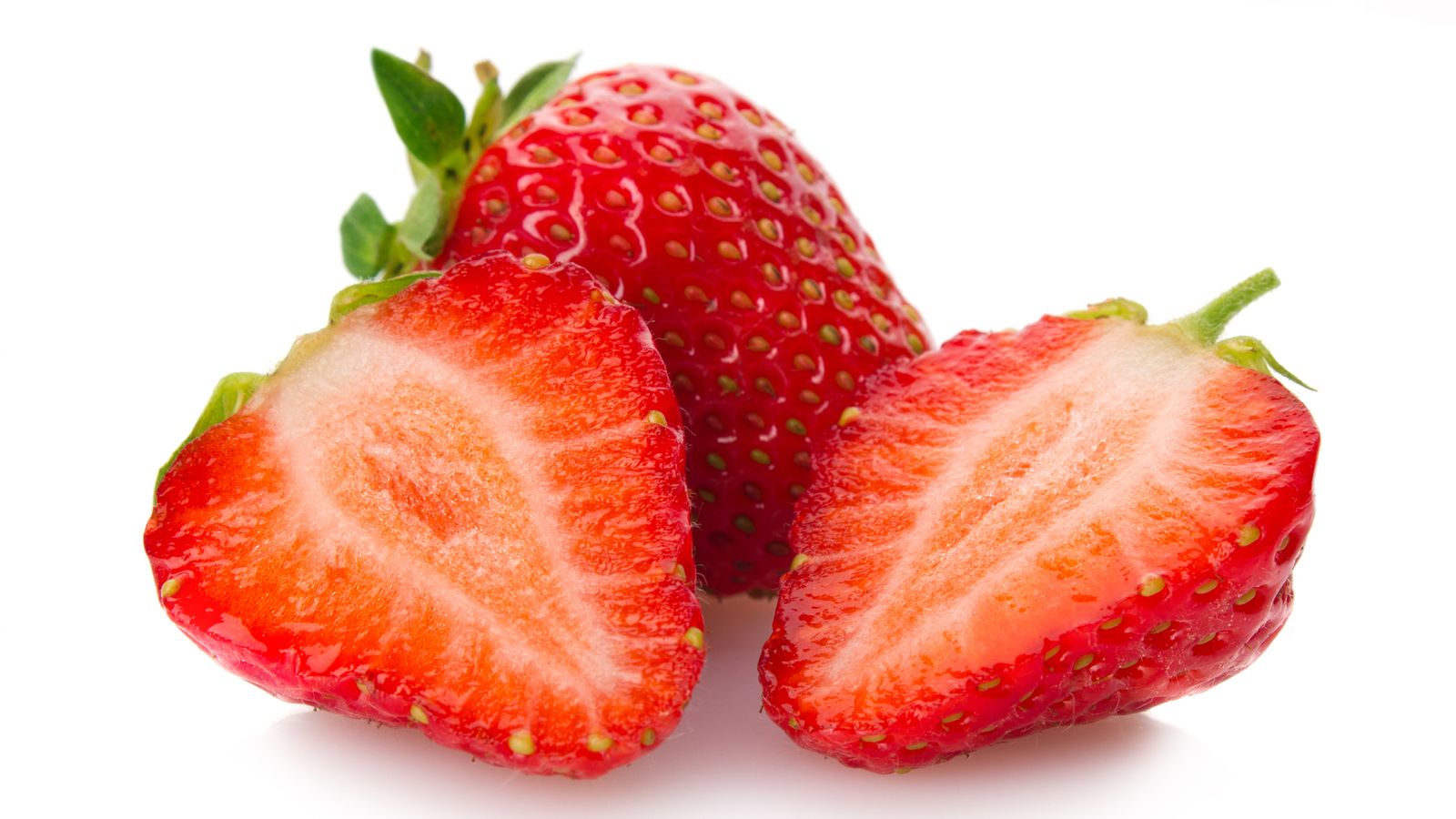This year’s crop of British strawberries is predicted to be 50% larger than last year’s – and sweeter too.
The summer favourite ripened under about 166 hours of sunshine in April – 7% above the monthly average, British Summer Fruits said.
And they will be sweeter – again because of the sunshine, which has boosted the fruit’s natural sugar content.
The berries will be in supermarkets next week; last year we had to wait until June, when the crop was delayed by cooler conditions.
It means they should be widely available for the Queen’s Platinum Jubilee weekend, at the start of next month, when it is forecast that 5,000 tonnes of British strawberries will be bought.
Bright days have been coupled with cool nights, which “allows strawberry plants to rest well and put their energy gained during the day into producing high natural sugars overnight,” said Rupert Carter, technical director of WB Chambers Farms.
“This process makes the berries sweeter and is one of the main reasons for such good tasting fruit,” he added.
Politics live: Charles stands in for Queen as Boris Johnson’s priorities outlined – and PM makes ‘beergate’ joke to Keir Starmer
Queen’s Speech: PM vows to ‘ease cost of living’ as Prince of Wales reads government’s legislative agenda for year ahead
Queen’s Speech: From protesters to a new football regulator – what is in Boris Johnson’s legislative agenda for the next year
Some of the berries are grown in glasshouses while others are matured in polytunnels on tabletops.
Nick Marston, chairman of British Summer Fruits, said that while rising energy and labour costs are presenting “real challenges”, UK strawberries “remain a true success story”.
“The UK is totally self-sufficient in strawberries for the entire summer season which now runs from May to October as farms continue to advance growing techniques, such as large-scale glasshouse production for season extension,” Mr Marston added.
Last year, Britons bought more than 87,000 tonnes of British strawberries.
According to figures from data analysts Kantar, the industry is worth more than £769m to the British economy.






















